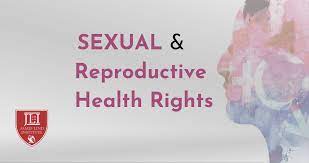Reproductive Rights and Reproductive Health
May 20, 2023
This essay discusses the importance of reproductive rights and reproductive health in today's society. Reproductive rights refer to the legal and human right of individuals and couples to decide whether, when, and how often to reproduce.
Reproductive health is an essential component of overall physical and mental well-being that includes access to family planning services, safe pregnancy and childbirth, prevention and treatment of sexually transmitted diseases (including HIV/AIDS), education on sexual and reproductive health issues, as well as access to information about contraception.
Reproductive Rights and Reproductive Health
In many countries around the world, particularly those in developing countries or with repressive regimes, accessing these rights is not always guaranteed. Laws are often restrictive and gender roles are heavily enforced. Women often lack control over decisions related to their bodies due to patriarchal structures and gender discrimination. Such obstacles can lead unwanted pregnancies, unsafe abortions, limited access to contraception, and a lack of education on reproductive health issues.

The consequences of these problems are far-reaching: higher rates of maternal mortality; decreased educational opportunities for young people due to early pregnancy or lack of information about contraception; family instability due to frequent pregnancies; and the spread of HIV/AIDS through unprotected sexual intercourse due to lack of knowledge or access to contraception.
It is essential that all individuals are able to exercise their reproductive rights in order to ensure healthy families and societies. Governments must provide comprehensive sex education, guarantee access to contraceptives, ensure safe abortion services are available where needed, and protect the right of individuals to decide when and if to have children. These actions must be accompanied by a focus on gender equality and justice, ensuring that women's rights to choose are respected and protected.
Ultimately, reproductive rights and health must be seen as essential components of human well-being and development. By guaranteeing access to quality reproductive services, governments can help ensure the physical, mental, and emotional welfare of their citizens and create strong communities that are free from violence, poverty, and disease. With this in mind, it is important to recognize the urgent need for greater respect for reproductive rights around the world. Only when individuals have autonomy over their bodies can these global issues truly be addressed.
